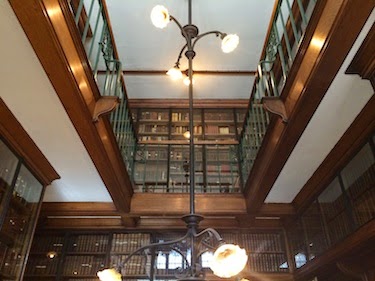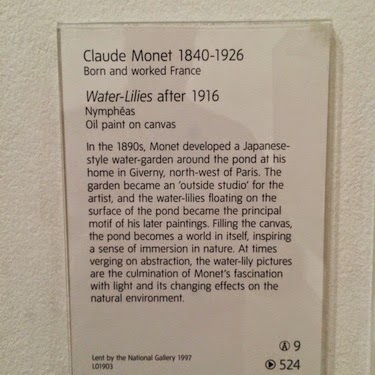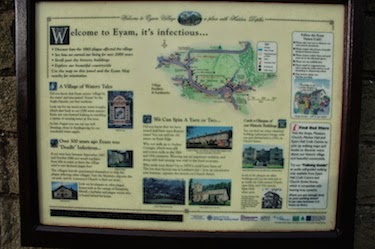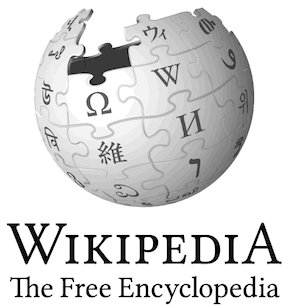 |
| A Reading Room of the John Rylands Library, Manchester, England |
One of the questions I’m often asked by our friends and family about our travel blog is, “How do you know this stuff?” To answer concisely, it’s because of a wealth of brainuriance. If you don’t recognize this word, it’s one of my own invention which you should read about here.
Not being known for my brevity, a more complete answer is that we are consumed with nearly as much curiosity as we are consumed with wanderlust, and we love to read pretty much anything on any topic. As children, we were both the kind that would sit and read encyclopedias (the good-ole, multi-volume, tree-devastating variety like World Book and Encyclopedia Britannica). As adults, we are both the kind that will whip out our iPhones in an instant to look something up on Google, Wikipedia, or IMDB (our top three reference resources) because if we don’t, the curiosity–or worse, the inability to recall a previously known factoid, the frequency of which is dreadfully increasing–will literally drive us nuts.
Here are a couple of real examples: I (Chuck) am currently reading Bill Bryson’s “At Home: A Short History of Private Life”. For pleasure, I should add. It’s a fascinating history of everything that makes up our homes and answers questions like, why–of the hundreds of possible spices at our disposal–do we only put salt and pepper shakers on our tables? Like Bryson, I wonder about stuff like this. Another example: just down the road from where we’re staying in Nottinghamshire, England is the village of Eastwood, best known as the home of writer DH Lawrence. Since we happened to drive by the DH Lawrence Heritage Center a few days ago, we’ve (ok, ok, Chuck has) been reading up on Lawrence and have found his life both fascinating and salacious, so prepare yourself for a blog tomorrow on DH Lawrence, whether you like it or not.
So the “rest of the story” (certain of our readers know where that phrase comes from, so obviously we’re not the only people endowed with brainuriance) is that as we’re traveling and we’re visiting and touring a museum or art gallery, or simply driving through the countryside, we read all those little signs and plaques and we actually watch and listen to the multimedia displays. If it’s even remotely blog or tweet worthy, I’ll snap a picture of it so I can refer to it later. If it sparks an interest in learning more or delving deeper, I Google it, read up on it on Wikipedia, and pursue it until our curiosity is satisfied. When a guidebook says to plan to spend an hour in Museum X, we know it will take us two hours. What’s the point of going if you only leave with a superficial exposure to the exhibits? Unless of course the reason you were there to begin with was to cross it off your bucket list, but that’s about as far from our style of travel as amchoor is from being in a shaker on our table.
 |
| The Description of Monet’s Water-Lilies at London’s Tate Modern |
 |
| Info Plaque on the Village of Eyam, England |
Our conversations often go something like this:
Chuck: “Hey, do you know why we use the phrase ‘o’clock’ when telling someone the time?”
Lori: “No.”
Chuck: “Well, with the advent of mechanical clocks…” (insert 5 to 8 minutes of purely fascinating discourse taken primarily from this Gizmodo article and some supporting materials found on Wikipedia). “Isn’t that fascinating?”
Lori: (Snores)
Finally, a plug for Wikipedia. Just like with the link to amchoor above, we love to use Wikipedia. When it first gained popularity, it was eyed with suspicion because of its community-contribution nature. It is indeed true that anyone–literally, anyone–can edit an article, which might seem to make it suspect as a source of information. But so many people monitor articles in which they posses expertise that if a speck of something incorrect gets published, it will likely get caught and corrected in minutes, if not seconds. Try, for example, to edit the article on Benjamin Franklin and claim that he was actually born in Shanghai, China. Not only will it be corrected in short order, but your IP address might get banned from making contributions to Wikipedia. All in all, it’s a reliable source of information, and we are (ok, ok, Chuck is) a regular contributor, though my contributions tend to be limited to grammatical improvements. It’s an invaluable tool for nomadic empty-nester travel couples everywhere.
Finally, Wikipedia is actually the product of a nonprofit organization. You can, and should if you regularly use it, contribute to their mission–just as we have–by clicking here or the Wikipedia logo below. And if you don’t know what amchoor is, you should click that link above to find out!




